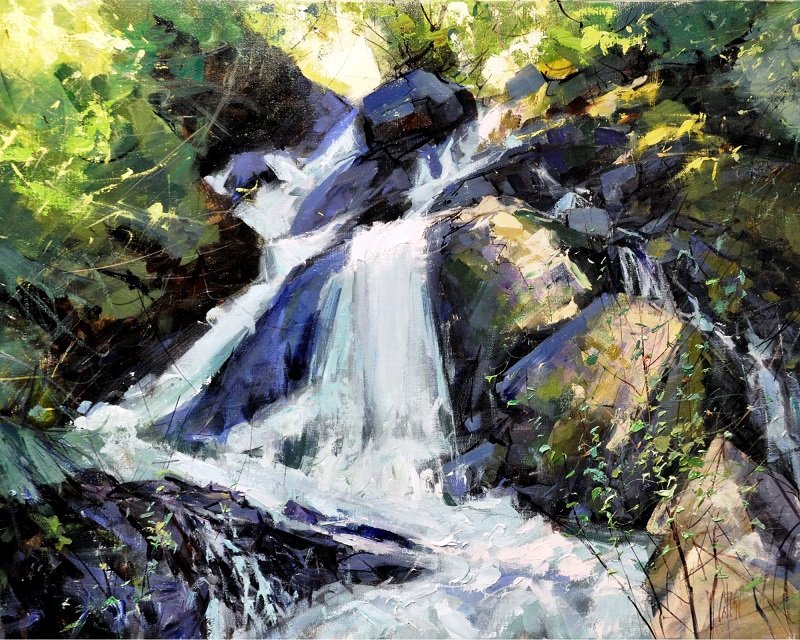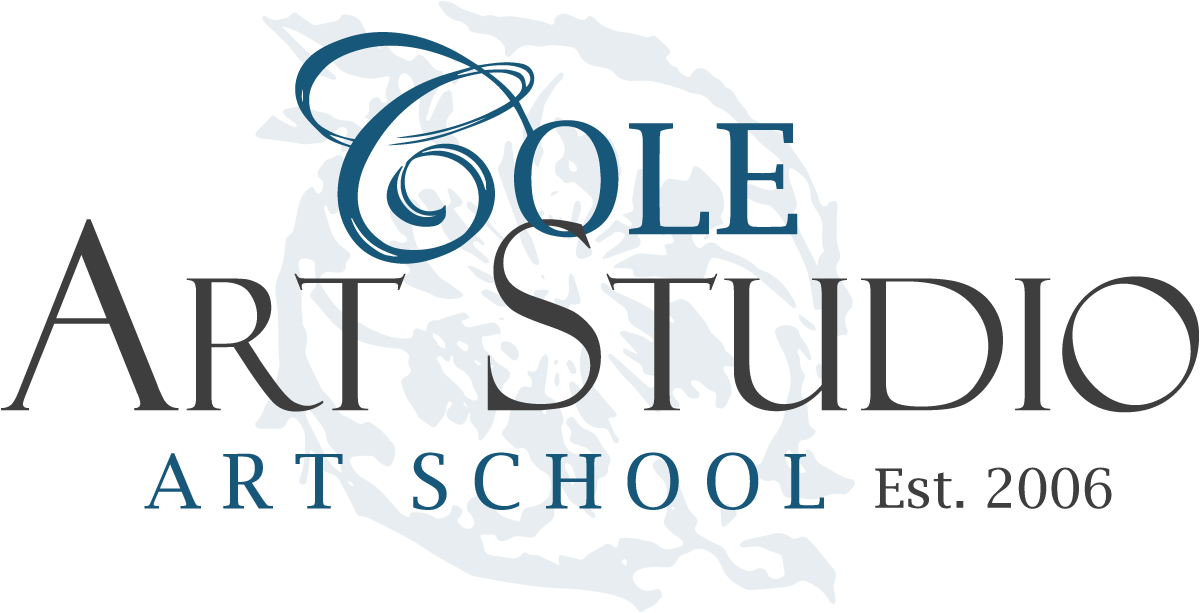Lakes, Streams, and Waterfalls in Oil w/ Mike Wise - May 2 - 4: 10:30-5:30: Beginners with a little experience to intermediate


Lakes, Streams, and Waterfalls in Oil w/ Mike Wise - May 2 - 4: 10:30-5:30: Beginners with a little experience to intermediate
Fri-Sat-Sun/ May 2-4/ 10:30-5:30 pm
Let Mike Wise guide you through the secrets of capturing dynamic impressionist landscapes featuring the movement of water. Using subject matter ranging from reflective ponds to cascading streams, you’ll learn how to design a strong composition and create energy, atmosphere, and mood in your paintings. You’ll experiment with paint application techniques to add beauty, drama, and liveliness to your art.
In addition to opening a treasure chest of technique, this class will give special emphasis to water, reflections, transparency, and movement. Water has a moderating effect on everyting it touches, specifically transparent water with reflections. Mike will take you though his processes for painting water in various states, everything from highly reflective, transparent, still, and moving water. Painting convincing water relies heavily on edges and transparency of paint. Students will learn:·
How to paint realistic underwater elements...i.e. rocks logs, etc·
How to control values and transparency to achieve depth in water
·Using edges in suggesting moving water·
How to acehive realistic reflections with the power of suggestion·
How water effects color, value, and temperature·
How to use water as a compositonal element
Exaggeration for impact including impasto and totally lost edges
Level: Some experience painting and color mixing is required.
SUPPLY LIST :
Required Oil Paints: (Good quality professional brand such as Gamblin or M. Graham)
Titanium White pure
Mixed White (titanium/zinc
Cad Yellow Light
Yellow Ochre
Cad Red Light
Alizarin Crimson
Venetian Red
Transparent Red Oxide
Pthalo Green
French Ultramarine
Prussian Blue
Other Colors (Mike uses the rest of these regularly; not all will be needed, however, for the class):
Zinc White
Flake White
Cad Lemon Yellow
Cad Yellow Deep
Cad Red Medium
Phthalo Emerald
Cobalt Blue
Diozonine purple
Sap Green
Ivory Black
Azo Green
Viridian
Brushes and Knives- You are going to want good brushes with a sharp edge and spring to them. If you do not have new brushes or some older ones in excellent condition, you may want to pick up a few. This will make a substantial difference and is well worth the money. (Mike uses both Rosemary Ivory line and Trekell Opal Brushes as noted below) Six brushes is really all you will need at a minimum. Bring whatever other tools you like and are comfortable with. The important part with the brushes is that they are of good quality. They do not need to be the same brand as Mike’s.
With regard to knives— the small one is for detail painting, the larger (3 inch) is used for paint mixing and painting. Make sure you have knives that are very flexible. These are from Italy. Check the spring of each brush. It should really bend easily. Many of the cheaper knives and/or USA-made knives are too stiff. They are more useful as masons’ tools rather than for painting.
· (1) Bristle flat size 10 (Rosemary Classic short flat or equivalent)
· (2) Bristle filbert brushes in size 6 & 8 (Trekell Opal series or equivalent)
· (1) Soft filbert brush size 8 (Trekell Legion or equivalent)
· (1) Rigger brush for details size 4 (Rosemary Ivory or equivalent)
· (1) flat synthetic size 4 (Rosemary Ivory short flat or equivalent)
· (2) Painting knives Italian made (small triangle and large/medium size triangle. RGM is a good Italian-made knife or equivalent)
Medium
Oil of spike lavender and oil of rosemary, both of which can be purchased through Art Treehouse or equivalent.
Gamsol for cleaning brushes
Galkyd gel or other impasto medium
The galkyd gel from Gamblin is close and works well for holding brushwork and is far less expensive. If you have another medium you are comfortable with, bring that.
Supports (canvas panels)
Three or more good quality painting supports. Mike uses 12x16-18x24 for most work, 12x16 almost exclusively for plein air.
Panels are easiest to transport. Mike uses oil-primed linen Claessens #66 panels. This type can be purchased from Sourcetek art supplies: www.canvaspanels.com.
Other:
Reference photos- these need to be large enough to see the details. Small 3x5 photos are not suitable. Photos should have an overall strong simple design.
Large Palette for your paints - a hard, smooth surface such as glass or wood is recommended. (Paper palettes are discouraged, as they are difficult to use compared with a hard, smooth surface.)
Paper towels
Brush cleaner
Surgical or Exam gloves





